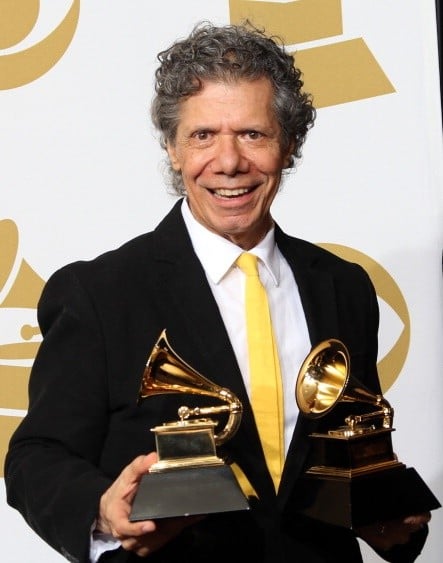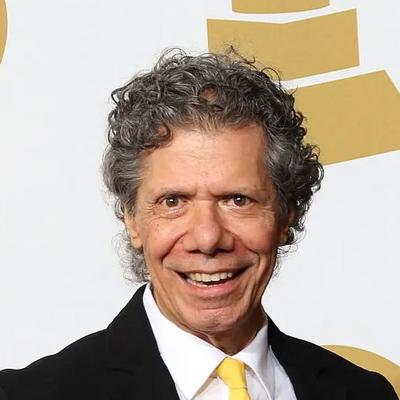Chick Corea at a Glance
- Categories: Celebrities, Celebrities > Rock Stars
- Net Worth: $5 Million
- Birthdate: Jun 12, 1941 (83 years old)
- Birthplace: Chelsea
- Gender: Male
- Profession: Pianist, Keyboard Player, Bandleader, Composer, Keytarist, Jazz Pianist, Film Score Composer
- Nationality: United States of America
Chick Corea: A Musical Titan’s Life, Net Worth, and Legacy
Chick Corea, a name synonymous with innovation and virtuosity in the world of jazz, left an indelible mark on music history. This comprehensive article delves into the life, career, and lasting impact of this legendary musician, exploring his net worth, early influences, groundbreaking collaborations, and the evolution of his unique musical style. From his early days to his final performances, we’ll uncover the journey of a true musical pioneer.
Early Life and Education
Armando Anthony “Chick” Corea was born on June 12, 1941, in Chelsea, Massachusetts. His heritage was rooted in Italian ancestry. Introduced to the vibrant world of jazz by his father, a Dixieland bandleader, Corea’s musical journey commenced at the tender age of four when he began playing piano. By eight, he had added drums to his repertoire. His dedication to mastering his craft led him to study under concert pianist Salvatore Sullo. Beyond formal lessons, he gained experience in the drum and bugle corps, St. Rose Scarlet Lancers. His teenage years were filled with performances, including a regular trio gig at a local jazz club. He briefly attended Columbia University and the Juilliard School in New York City before ultimately pursuing a path that aligned more closely with his own musical vision.
Career Beginnings and Early Collaborations
Corea’s professional career took flight in the early 1960s. He quickly established himself as a sought-after musician, recording and touring with jazz luminaries like Willie Bobo, Herbie Mann, Stan Getz, and Blue Mitchell. These collaborations provided a fertile ground for his creative growth. In 1968, he released his debut solo album, “Tones for Joan’s Bones,” showcasing his burgeoning talent as a composer and bandleader. This was swiftly followed by his critically acclaimed second album, “Now He Sings, Now He Sobs.” This album featured the remarkable acoustic bassist Miroslav Vitouš and drummer Roy Haynes, cementing Corea’s reputation as a force to be reckoned with in the jazz scene. These early experiences laid the groundwork for his future success.
The Miles Davis Era: Shaping Modern Jazz
A pivotal moment in Corea’s career arrived in the late 1960s when he began a significant professional partnership with the legendary Miles Davis. He became a member of Davis’s band, and their collaboration resulted in some of the most influential albums in jazz history. Corea’s distinctive piano style and innovative approach contributed significantly to Davis’s exploration of new musical territories. He appeared on iconic albums such as “Filles de Kilimanjaro,” “In a Silent Way,” “Bitches Brew,” and “On the Corner,” which redefined the boundaries of jazz. Corea’s performances also graced live albums like “Black Beauty: Miles Davis at the Fillmore West” and “Miles Davis at Fillmore: Live at the Fillmore East.” This period of collaboration, which lasted until 1970, was instrumental in shaping the future of modern jazz.

Frederick M. Brown/Getty Images
Circle: Exploring Avant-Garde Jazz
In the early 1970s, Corea, along with bassist Dave Holland (also a member of Miles Davis’s band), formed the avant-garde jazz ensemble Circle. This group, which also featured drummer Barry Altschul and multi-instrumentalist Anthony Braxton, provided an outlet for exploring more experimental and abstract musical ideas. Although relatively short-lived, Circle left a lasting impression on the avant-garde jazz scene. The group released several live albums, documenting their unique and challenging performances. Corea, Holland, and Altschul also collaborated on the album “A.R.C.,” further showcasing their musical chemistry.
Return to Forever: Pioneering Jazz Fusion
In 1972, Corea founded the influential jazz fusion band Return to Forever. This project became one of his most commercially successful and artistically significant endeavors. The original lineup featured Flora Purim, Airto Moreira, Stanley Clarke, and Joe Farrell, exploring a Latin-oriented style of jazz. Their eponymous debut album, released on ECM Records, marked the beginning of a prolific period. Return to Forever’s second album, “Light as a Feather” (1973), proved to be a breakthrough, featuring the iconic composition “Spain,” which became one of Corea’s most recognizable and beloved works. Over time, the band’s lineup evolved. Lenny White and Bill Connors joined the group, leading to the recording of the album “Hymn of the Seventh Galaxy.” Al Di Meola replaced Connors, further solidifying the band’s sound. The band continued to evolve, producing albums such as “Where Have I Known You Before,” “No Mystery,” and “Romantic Warrior.” The band’s final studio album, “Musicmagic,” was released in 1977, solidifying their place as pioneers of jazz fusion.
Duets and Notable Collaborations
Throughout his career, Corea actively sought collaborations with other musicians, exploring the intimate format of duets. In the 1970s, he recorded several duet albums with vibraphonist Gary Burton, showcasing their remarkable musical rapport. He also performed a series of concerts with pianist Herbie Hancock, another giant of the jazz world. Early in the 1980s, Corea performed a memorable live duet with classical pianist Friedrich Gulda, bridging the gap between jazz and classical music. Later in his career, he collaborated with banjoist Béla Fleck and pianist Hiromi Uehara on both albums and concert tours. In 2015, he reunited with Herbie Hancock for a highly anticipated duet concert series, further underscoring the enduring power of their musical partnership. These collaborations highlighted Corea’s versatility and his ability to connect with musicians from diverse musical backgrounds.
Other Musical Endeavors: Elektric Band, Akoustic Band, and Beyond
Beyond his core projects, Corea was involved in numerous other musical endeavors. He led the Chick Corea Elektric Band, later renamed the Akoustic Band. These groups released a series of albums between 1986 and 1994, further expanding his musical horizons. He also established his own record label, Stretch Records, which allowed him to maintain greater artistic control over his work. In the late 1990s, Corea ventured into the realm of contemporary classical music. He composed his first piano concerto, which he performed with the London Philharmonic Orchestra, demonstrating his versatility as a composer and performer. He continued to record jazz fusion albums into the 21st century, further solidifying his legacy. He formed a new group, the Five Peace Band, and embarked on a world tour in 2008, demonstrating his continued passion for live performance and his willingness to explore new musical directions.
Scientology and its Influence
Corea’s interest in Scientology began in 1968 when he read L. Ron Hubbard’s “Dianetics.” This interest grew throughout the 1970s and had a noticeable impact on the direction of his music during that period. His involvement with Scientology is a significant aspect of his personal and artistic life, and it’s important to consider this influence when studying his work.
Personal Life and Death
Corea’s personal life was marked by two marriages. He had two children, Thaddeus and Liana, with his first wife, Joanie. He was later married to musician Gayle Moran, but they had no children. Sadly, Chick Corea passed away on February 9, 2021, at his home in Tampa Bay, Florida, at the age of 79, after battling cancer. His death marked the end of an era in jazz music.
Real Estate
In 1997, Corea purchased an 8,600-square-foot mansion in Largo, Florida, for $825,000. This location was notably close to Scientology offices in Clearwater, reflecting his personal interests and lifestyle.
Legacy and Net Worth
At the time of his death, Chick Corea’s net worth was estimated to be $5 million. This figure reflects his successful career as a musician, composer, and bandleader. Corea won 27 Grammy Awards, tying him with Alison Krauss for the fourth-most wins in Grammy history, behind Beyoncé, Quincy Jones, and Georg Solti. More importantly, his true legacy is reflected in the countless musicians he influenced, the innovative music he created, and the joy he brought to audiences worldwide. Chick Corea’s impact on the music world is immeasurable, and his contributions will continue to inspire generations of musicians to come.

